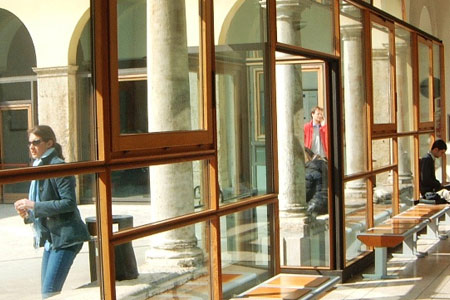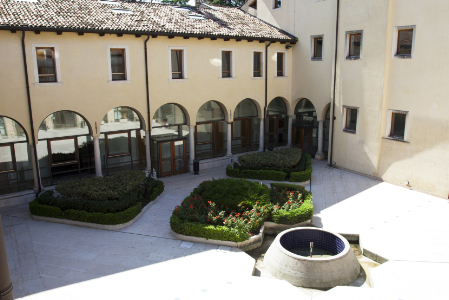The project aims to elaborate an interdepartmental research with a view to monitoring the intergated European judicial system. The research wil analyse the degree of protection of the fundamental rights afforded by the legal rules,by administrative and judicial organs, in the relevant legal systems (national and supranational). Special attention will be devoted to a comparative analysis of the Italian Costitution and of the European Charters (EU Charter of Fundamental Rights, the European Convention on Human Rights), as well as to the interpretation and application of such rights by the national and supranational courts (the European Court of Justice, the European Court of Human Rights).
The unit research takes step from the approval of the Nice Chart, at Union level, and the contemporary process of institutional reform in Italy up to the enactment of the new V title of the Italian Constitution (Act. n. 1 of 2001).
In the regulation of the employment relationship, the distribution of jurisdiction between the State and the Regions is not very clear; there is therefore the risk of a fragmentation of labour law on a regional basis. One of the most relevant problem, in this context, is that of social fairness in organising the legislative process in the present federalist reform rather than that of the alternative between centralism and decentralisation.
The reform of art. 117 of the Italian Constitution arises some questions about the uniformity and the diversification of labour law. The analysis will focus on the way according to which the social rights provisions are distributed between the State and the Regions, but not only. The research aim investigate the systemic interference between the evolution of law and the federal institutions as well as their effects on the collective bargaining structure at different levels.
This approach that start from the interference between labour law and institutional engineering arrived to analyses, in a historical perspective, the contents of the equality principle – and the different types of discrimination based on any ground such as sex, race, age, etc. - and their different impacts in the domestic law and in Italian jurisprudence. The article 21 of the Charter of fundamental rights of the European Union, en effect, disposed that “Any discrimination based on any ground such sex, race, colour ethnic or social origin, genetic features, language, religion or belief, political or any other opinion, membership of a national minority, property, birth, disabilility, age or sexual orientation shall be prohibited”; art. 22 e art. 23 disposes that “The Union shall respect cultural, religious and linguistic diversity” and that “Equality between men and women must be ensured in all areas, including employment, work and pay”.







